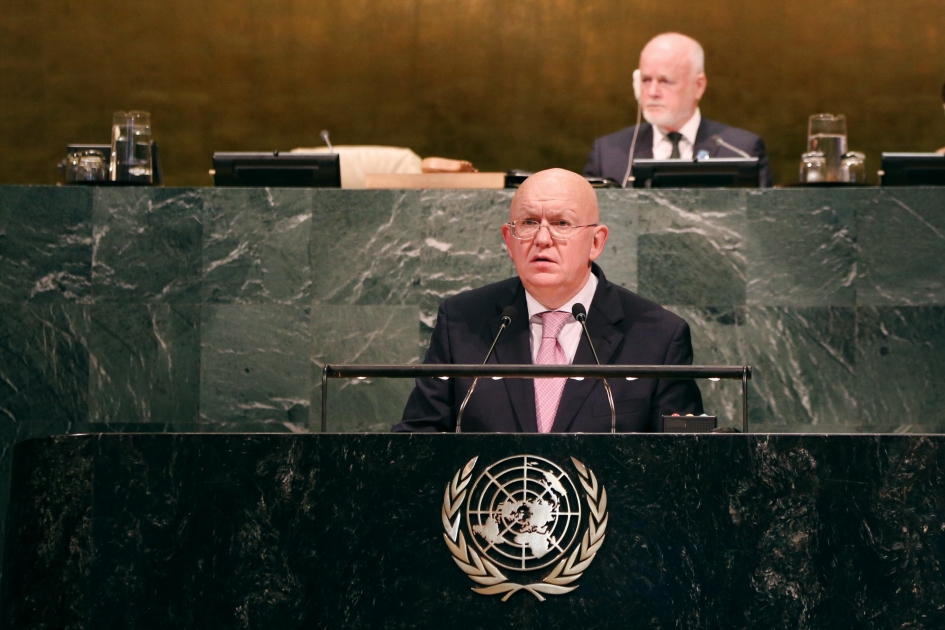Statement by Ambassador Vassily A. Nebenzia, Permanent Representative of the Russian Federation to the United Nations, at the 71st General Assembly meeting on the United Nations Global Counter-Terrorism Strategy (Agenda item 118)
Today, the fight against terrorism is a priority issue on the international agenda. Unfortunately, its salience has not abated. Our country has never ceased to call for increased cooperation in order to combat this evil and increased effectiveness in doing it. The United Nations should undoubtedly play the central coordinating role in that work.
The Global Counter-Terrorism Strategy is an important overarching instrument for addressing many modern aspects of the terrorist threat. Theimplementation of the Strategy places primary importance on creating national counter-terrorist strategies, and Russia was among the first to do so. Since the Strategy was adopted in 2006, we have established a completely new security system for combating terrorism, and in those 11 years, the terrorist threat in Russia has been drastically reduced.
At the same time, our citizens still face its terrible, inhumane manifestations, an example of which was the murder in December 2016 of Mr. Andrey Karlov, our Ambassador to Turkey. In April this year, a terrorist in the Saint Petersburg metro killed 15 people and injured dozens of others. These events once again highlighted the fact that today everyone must work collectively to fight the terrorist threat, because none of us is immune to it.
Our delegation supported the adoption in June of resolution 71/291, creating the United Nations Office of Counter-Terrorism to strengthen the coordination of United Nations counter-terrorist activities.
We expect that the Secretary-General’s comprehensive reforms will also produce significant results in terms of improving the legal basis of counter-terrorism and providing targeted technical support to countries in need. We are grateful to the Secretary-General and the Secretariat for the constructive and transparent manner in which they have developed the framework for this reform and for their readiness to take into account the opinions of interested States.
We welcome the recent decision to appoint a prominent Russian diplomat, Mr. Vladimir Voronkov, as Under-Secretary-General and head of the Office of Counter-Terrorism. We firmly believe that his broad and multifaceted experience and knowledge of the United Nations system — from his work addressing new threats and challenges, including in Vienna — will enable an effective effort in this area, and we look forward to productive cooperation with the new entity.
Terrorism must be combated with unwavering adherence to the norms of international law, including respect for the sovereignty and equality of States and non-interference in their internal affairs, as well as consistent, universal implementation of the relevant resolutions of the Security Council adopted under Chapter VII of the Charter.
It is essential to ensure a balanced implementation of all four pillars of the Strategy and to combine the military and human rights aspects of counter-terrorist activities with broad, systemic efforts to eliminate the conditions that lead to terrorism. At the same time, the most important tasks today include combating the problems of foreign terrorist fighters, financing for terrorism and the spread of terrorist ideology, including through the use of modern technology. Unfortunately, some contradictory concepts originally laid down in the strategy for preventing violent extremism have created obstacles to extracting real added value from it. We must take that into account in future preventive activities.
Let me emphasize once again that the success of the Secretary-General’s reforms is not solely dependent on institutional changes within the United Nations. The political will and readiness of States to fight terrorism together is crucial. My country is resolved to do so.
